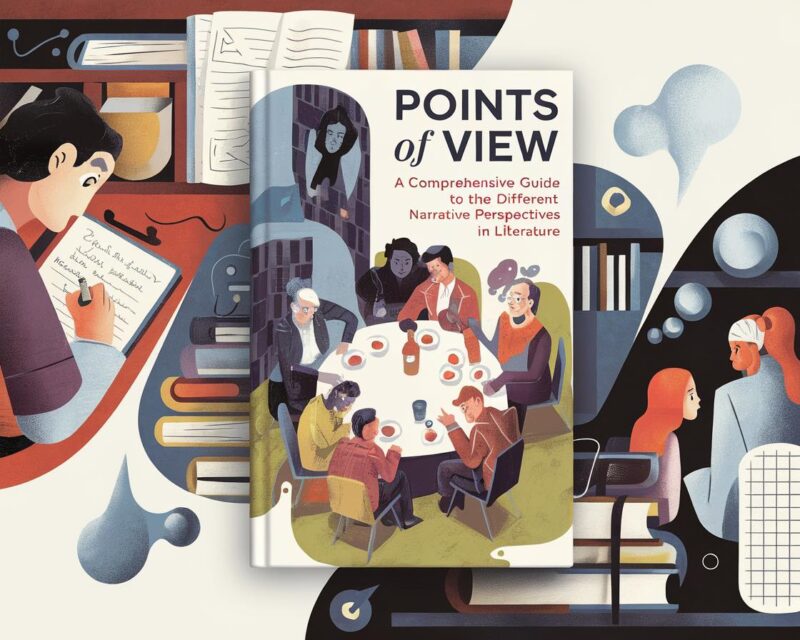The cyberpunk genre has captivated audiences for decades with its gritty and dystopian portrayal of a future heavily influenced by advanced technology. As a subgenre of science fiction, cyberpunk explores the intersection of technology and humanity, often dealing with thought-provoking narratives on the consequences of technology gone wrong.
From advanced cybernetic enhancements to omnipresent surveillance systems, these narratives reflect our fears and aspirations regarding technological advancements. The genre often portrays sprawling metropolises plagued by corruption, inequality, and powerful corporations that control every aspect of society. Within these narratives, virtual reality serves as a prominent theme, offering an escape from the harsh realities.
Most stories in the cyberpunk genre caution against unchecked power from technological progress while simultaneously highlighting the potential for liberation through resistance against oppressive systems.
In this article, we examine the cyberpunk genre’s evolution through the cautionary tales of advanced technology and provide notable examples from literature that have shaped our understanding of this genre. While the cyberpunk genre is used in various contexts, such as books, films, and games, we focus on cyberpunk literature in this article.
By analyzing cyberpunk literature, we gain insights into how it reflects societal anxieties surrounding emergent and advanced technology, thereby providing us with a narrative that is both entertaining and thought-provoking.
The Origins of Cyberpunk: A Brief History of its Influence on Pop Culture
Emerging in the 1980s, cyberpunk quickly gained prominence for its unique blend of high-tech innovation and societal decay. The genre’s origins and subsequent influence on various media offer a fascinating journey through the evolution of speculative fiction.
William Gibson, whose novel Neuromancer (1984) is regarded as a landmark work in cyberpunk fiction, is one of the most important writers in this genre. Gibson’s book exposed readers to a world of hacking, artificial intelligence (AI), and virtual reality, establishing the narrative tropes of cyberpunk.
The roots of cyberpunk literature can also be traced to Philip K. Dick’s novels, one of which is Do Androids Dream of Electric Sheep? (1968), which laid the groundwork for the genre’s fascination with the blurring boundaries between human and machine and the exploration of identity vs. reality.
The influence of the cyberpunk genre quickly spread beyond the pages of books, however, and found its way into popular culture, which has had a profound impact on other mediums such as movies and video games.
Films like Ridley Scott’s Blade Runner (based on Philip K. Dick’s work) released in 1982 brought the genre’s visual style to life with its rain-soaked metropolis, neon lights, and humanoid androids. This cinematic masterpiece not only shaped the aesthetics of cyberpunk but also laid the groundwork for its thematic exploration of identity and corporate control.
Furthermore, the cyberpunk genre has also made its mark on the gaming industry. Video games such as Deus Ex and Cyberpunk 2077 embrace its aesthetic and narrative elements, immersing players in sprawling futuristic cities filled with advanced technology and moral dilemmas, where they can experience firsthand the genre’s central themes.
Music, too, was not immune to cyberpunk’s influence. Bands like Kraftwerk and Gary Numan incorporated electronic sounds and dystopian themes into their music, giving rise to the subgenre known as “cyberpunk music” or “cyberpunk rock.” This fusion of sound and theme resonated with the genre’s futuristic vision and contributed to its broader cultural impact.
As the 21st century dawned, cyberpunk’s reach expanded to television and streaming platforms. Shows like Black Mirror and Altered Carbon continued to explore the ethical implications of advanced technology and its effect on society. The visual language and philosophical inquiries inherent to cyberpunk found new avenues of expression in these contemporary narratives.
From Neuromancer to Ready Player One
Neuromancer is considered by many to have first introduced the concept of “cyberspace,” referring to a digital realm where individuals can access information and communicate through interconnected computer networks.
In Gibson’s book, readers are introduced to a dystopian future where advanced technology intertwines with a gritty urban landscape. Published in 1984, the novel set the stage for the cyberpunk movement and inspired countless authors to explore similar themes in their works.
Gibson’s protagonists traverse expansive cityscapes while grappling with issues of agency and selfhood in a world characterized by data and digital connections. As you read Neuromancer, you’ll be taken into an immersive universe where technology and the human mind coexist.
It is through Gibson’s pioneering concept of cyberspace, which has become ingrained in our collective imagination and has shaped our understanding of the potential of virtual reality, that we are reminded of the power of literature to push boundaries and challenge our perceptions of what is possible in both fiction and reality.
In other aspects of cyberpunk literature, Neal Stephenson’s renowned novel, Snow Crash (1992), is well regarded as having first put the metaverse center stage while offering readers a thought-provoking exploration of virtual worlds and their implications for society. Being also one of the prominent figures in cyberpunk fiction, Stephenson delves, through his book, into a future where individuals immerse themselves in a digital realm known as the metaverse, with a sense of foreboding over our disconnect from reality and human interaction.
Within this narrative, Stephenson presents a compelling vision of VR technology and its transformative potential. The metaverse serves as both an escape from reality and a platform for social interaction, blurring the line between physical and digital existence.
Fast forward to the 21st century, and the landscape of technology has transformed dramatically. This shift is evident in the pages of Ready Player One (2011), where the narrative unfolds within a sprawling virtual universe. Ernest Cline’s novel pays homage to the cyberpunk tradition while adapting it to the digital age. The story’s emphasis on nostalgia, virtual reality, and the power of interconnected networks mirrors the evolution of technology itself.
The examination of identity and the effects of technology on interpersonal connections in Cline’s book assumes new dimensions as a result of the evolving methods in which we interact with our digital environment. The novel echoes the genre’s original concerns about corporate power and the potential loss of individual agency, now manifested in the context of virtual worlds.
As we trace the path from Neuromancer to Ready Player One, we witness the cyberpunk genre’s ability to transcend its origins while remaining true to its core themes. Through Gibson’s and Stephenson’s works, the genre emerged as a response to the rapid advancements in computing and the increasing influence of corporations on everyday life. Cline’s book further explores this by immersing readers in a virtual landscape, reflecting our contemporary preoccupation with digital escapism.
The Influence of Virtual Reality on Cyberpunk Narratives
The concept of VR technology has transformed how narratives are crafted in cyberpunk stories. In cyberpunk literature, VR serves as a powerful literary device that enables authors to explore deeper themes such as identity, surveillance, and the blurred boundaries between humanity and technology. By immersing readers in virtual environments that reflect the gritty urban settings of cyberpunk worlds, authors evoke a visceral response and encourage critical examination of societal issues.
Virtual reality in fiction allows authors (including filmmakers and game designers) to explore the blurred boundaries between the physical and digital realms. It raises questions about identity, consciousness, and the potential dangers that arise when technology becomes indistinguishable from reality itself.
Exploring Themes and Motifs in Cyberpunk Fiction
Within the captivating realms of cyberpunk fiction lies a deeper layer of social critique and introspection. As we delve into the narratives that define this genre, we uncover a tapestry of themes and motifs that serve as cautionary tales about the trajectory of technological advancement.
Technological Dystopia
At the heart of cyberpunk literature lies a pervasive theme of technological dystopia. Most narratives of this genre envision worlds where technological advancements have led to a stark divide between the privileged elite and the disenfranchised underclass.
Cyberpunk literature has become synonymous with futuristic settings where technology is both a blessing and a curse. In dystopian novels, advanced technologies play a prominent role in shaping the narrative. Technological advancements in cyberpunk fiction often serve as a backdrop for exploring the darker aspects of human existence.
Erosion of Human Agency

Another aspect that stands out is the development and integration of cognitive enhancement technologies, such as neural implants and cybernetic enhancements, which blur the line between human and machine. As characters navigate the integration of technology into their bodies and minds, the narrative raises profound questions about identity, authenticity, and the evolving nature of what it means to be human.
By depicting futuristic technologies, cyberpunk fiction raises the question of how far we are prepared to sacrifice our humanity for expediency and efficiency. As characters undergo cybernetic enhancements or upload their consciousness into digital realms, they confront the fragility of the human experience. These reflections challenge us to ponder the nature of humanity and the potential ramifications of altering our very essence.
Surveillance and Corporate Control
Closely intertwined with technological augmentation is the theme of corporate control and surveillance by megacorporations. In this type of narrative, massive conglomerates wield immense influence over governments and shape the lives of citizens.
One of the central motifs in cyberpunk fiction is the erosion of privacy and individual agency. Narratives of cyberpunk genre envision a future where personal data is commodified, and individual thoughts and actions are monitored and manipulated.
Themes of dystopian surveillance offer a mirror to our own reality, urging us to consider the implications of a world where personal freedoms are compromised for the sake of convenience and security. Such a backdrop serves as a cautionary tale, reminding us of the potential pitfalls of rapid technological development and the concentration of power in the hands of a few. The unchecked power of these corporations highlight the potential consequences of unbridled capitalism and the erosion of democratic ideals.
Ethical and Existential Dilemmas
Ethical and existential dilemmas are central to cyberpunk fiction. These narratives often depict characters facing complex moral choices as they wrestle with profound questions about their relationship with technology and the limits of human existence. The journey of these characters raises important questions regarding the ethical implications of our technological ambitions and the ways in which we shape, and are shaped by, the tools we create.
Through the lens of futuristic technology, these narratives challenge us to confront our own moral compass and consider the implications of our technological aspirations. As we immerse ourselves in the rich tapestry of cyberpunk, we are invited to examine our own values, navigate the intricate intersections of technology and humanity, and ultimately reflect on ethical dimensions of the genre.
Urban Decay and Alienation
Lastly, underlying many cyberpunk narratives is a sense of urban decay and alienation. The sprawling, neon-lit cityscapes that define the cyberpunk genre reflect a world where traditional communities have eroded and individuals often find themselves disconnected from each other.
As we immerse ourselves in the pages of cyberpunk literature, the delicate balance between progress and responsibility becomes a central theme, along with the enduring impact of human choices on the shape of the future. These motifs of the cyberpunk genre resonate with contemporary concerns about the isolating effects of technology, the erosion of genuine human connections, and the malleability of human identity.
Future Possibilities: Technology Predictions in the Cyberpunk Genre

The allure of the cyberpunk genre extends far beyond its captivating narratives and thought-provoking themes; it also offers a glimpse into possible technological trajectories that may shape our future. As we read cyberpunk books, we can find an interesting range of predictions and theories that could have changed the way we think about new technologies and how they might affect society.
One of the remarkable aspects of cyberpunk fiction is its ability to anticipate technological developments that were far ahead of their time. When Gibson introduced the concept of cyberspace in Neuromancer, he offered us a visionary glimpse into the interconnected digital landscape that would later become a reality with the advent of the World Wide Web. This ability to predict the emergence of global networks highlights the genre’s prescience and its capacity to inspire technological innovation.
VR Technology Frontiers
With the accelerated development of VR technology, cyberpunk fiction now has a vast array of future possibilities. With the advent of volumetric capture technology and haptic feedback systems, the VR experience is becoming more realistic than ever before, stretching the boundaries of realistic fiction. However, as we push boundaries and immerse ourselves further into virtual realms, it is essential to tread carefully and consider the consequences for both individuals and society as a whole.
Biotechnology and Cybernetics
Furthermore, cyberpunk fiction often explores the fusion of biotechnology and cybernetics, presenting characters with augmented bodies and enhanced cognitive abilities. While these concepts were once confined to the realm of speculative fiction, recent advancements in fields such as biohacking and neurotechnology have brought us closer to the realization of these possibilities. The rise of neural interfaces and prosthetic enhancements demonstrates how the genre’s predictions have sparked real-world conversations about the integration of technology into the human body.
Sophisticated AI Systems
The concept of AI is another cornerstone of cyberpunk narratives that has gained traction in the real world. As we witness the development of increasingly sophisticated AI systems, we are reminded of the genre’s portrayal of sentient AI entities and the ethical dilemmas they pose.
One notable aspect is the emergence of AI companions, which have become a common feature in these futuristic stories and provide characters with constant companionship and support. The line between human and machine blurs as we contemplate the potential for AI to match or surpass human intelligence, echoing the themes explored in cyberpunk fiction.
Digital Revolutions and Visions of the Future
The rise of the cyberpunk genre coincides with the digital revolution of the late 20th century, which saw the proliferation of computers, the internet, and interconnected devices. In 21st century narratives, the rise of hackers as protagonists and the depiction of immersive digital worlds in cyberpunk novels foreshadowed our contemporary reliance on technology for communication, entertainment, and even economic transactions. This confluence of events paved the way for the genre’s exploration of virtual reality, hacking, and the impact of digital technologies on society.
As we reflect on the predictions embedded within cyberpunk fiction, we recognize the genre’s profound influence on shaping our understanding of technology’s potential. The genre’s visionary narratives have inspired innovators, researchers, and futurists to explore the boundaries of what is possible. In this way, cyberpunk serves as more than just speculative fiction; it serves as a catalyst for the advancement of technology itself, propelling us toward a future that echoes the themes and possibilities envisioned by the genre’s pioneers.





